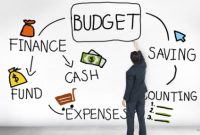Debt is a common financial hurdle that millions of people face, whether it’s student loans, credit card debt, mortgages, or personal loans. While borrowing can be a useful tool to fund education, purchase a home, or cover emergencies, unmanaged debt can feel overwhelming and hinder your financial progress. The good news is that with the right strategies, paying off debt and achieving financial freedom is possible. This article will guide you through practical steps to tackle debt, regain control of your finances, and move toward a debt-free future.
Understanding Your Debt Situation
Before you can create an effective repayment plan, you need to have a clear understanding of your current debt situation. Start by making a detailed list of all your debts, including:
- The lender or creditor’s name
- The total balance owed
- The interest rate
- The minimum monthly payment
- The repayment terms
Having this information in one place allows you to assess which debts are the most pressing and develop a strategy tailored to your financial circumstances.
Why Paying Off Debt Matters
Carrying excessive debt can have a range of negative consequences, from damaging your credit score to limiting your ability to save for the future. High-interest debts, like credit card balances, can grow quickly and make it harder to break the cycle of borrowing. Eliminating debt not only frees up your income but also reduces financial stress and increases your ability to invest in long-term goals like retirement, homeownership, or starting a business.
1. Assess Your Financial Health
Begin by analyzing your overall financial picture. Calculate your monthly income and subtract your essential expenses, such as rent, utilities, groceries, and transportation. The remaining amount is your disposable income, which you can allocate toward debt repayment. If your expenses are higher than your income, look for ways to cut costs or increase your earnings through a side hustle or freelance work.
2. Prioritize High-Interest Debt
Not all debt is created equal. High-interest debts, like credit cards and payday loans, can accumulate quickly and become unmanageable. One effective way to tackle debt is the debt avalanche method, where you focus on paying off the debt with the highest interest rate first while making minimum payments on other debts. This strategy saves you the most money on interest over time.
Alternatively, the debt snowball method focuses on paying off the smallest debt first, regardless of the interest rate. This approach can provide psychological wins as you eliminate debts one by one, building momentum and motivation to tackle larger balances. Choose the method that best suits your personality and financial goals.
3. Consolidate Your Debt
Debt consolidation can simplify repayment by combining multiple debts into a single loan with a lower interest rate. This strategy is particularly helpful if you have high-interest credit card debt. Common options for consolidation include personal loans, balance transfer credit cards, or home equity loans. However, be cautious about taking on new debt and ensure that the terms of the consolidation loan are favorable and align with your repayment plan.
4. Create a Realistic Repayment Plan
A successful debt repayment plan starts with a clear budget. Allocate a specific amount of your income to debt payments each month and stick to it. Consider using the 50/30/20 rule:
- 50% of your income goes to necessities like housing and food.
- 30% is for discretionary spending.
- 20% is for savings and debt repayment.
If your debt is significant, you may need to adjust these percentages by reducing discretionary spending and increasing the amount dedicated to debt repayment.
5. Cut Back on Unnecessary Expenses
Freeing up extra money to pay down debt may require making sacrifices in your lifestyle. Review your spending habits and identify areas where you can cut back, such as dining out, subscriptions, or impulse purchases. Redirect the money saved toward paying off your loans. Even small adjustments, like brewing coffee at home instead of buying it daily, can add up over time.
6. Increase Your Income
If cutting expenses isn’t enough, look for opportunities to increase your income. Consider taking on a part-time job, freelancing, or monetizing a hobby. The additional income can be used exclusively for debt repayment, accelerating your progress. Be sure to channel any windfalls, such as tax refunds, bonuses, or gifts, toward paying down your debt.
7. Negotiate with Creditors
If you’re struggling to make payments, don’t hesitate to reach out to your creditors. Many lenders are willing to work with borrowers to create more manageable repayment terms, such as lower interest rates, reduced monthly payments, or a temporary payment pause. Demonstrating a willingness to resolve your debt can lead to favorable outcomes.
8. Avoid Accumulating New Debt
While paying off existing debt, it’s essential to avoid accumulating new debt. Limit your use of credit cards, and avoid taking out additional loans unless absolutely necessary. Build an emergency fund to cover unexpected expenses, so you don’t have to rely on credit when emergencies arise.
9. Monitor Your Progress
Tracking your progress can keep you motivated and help you stay on track. Use a spreadsheet, budgeting app, or debt tracker to visualize how your balances are decreasing over time. Celebrate small milestones, such as paying off a credit card or reducing your overall debt by a certain percentage. These victories can inspire you to stay committed to your goals.
10. Seek Professional Help if Necessary
If you’re feeling overwhelmed or unable to manage your debt, consider seeking help from a financial advisor or credit counselor. Nonprofit credit counseling agencies can provide personalized guidance, negotiate with creditors on your behalf, and help you develop a realistic repayment plan. Avoid predatory debt relief companies that charge high fees and make promises that seem too good to be true.
Conclusion
Paying off debt is a journey that requires patience, discipline, and a clear plan. By understanding your debt, prioritizing repayment strategies, and making lifestyle adjustments, you can regain control of your finances and work toward financial freedom. Remember, every small step counts, and the sacrifices you make today will lead to a brighter and more secure financial future. Start taking action now, and you’ll be one step closer to living a debt-free life.




